Joe Geha's new book, 'Kitchen Arabic,' explores stories of his home country through recipes
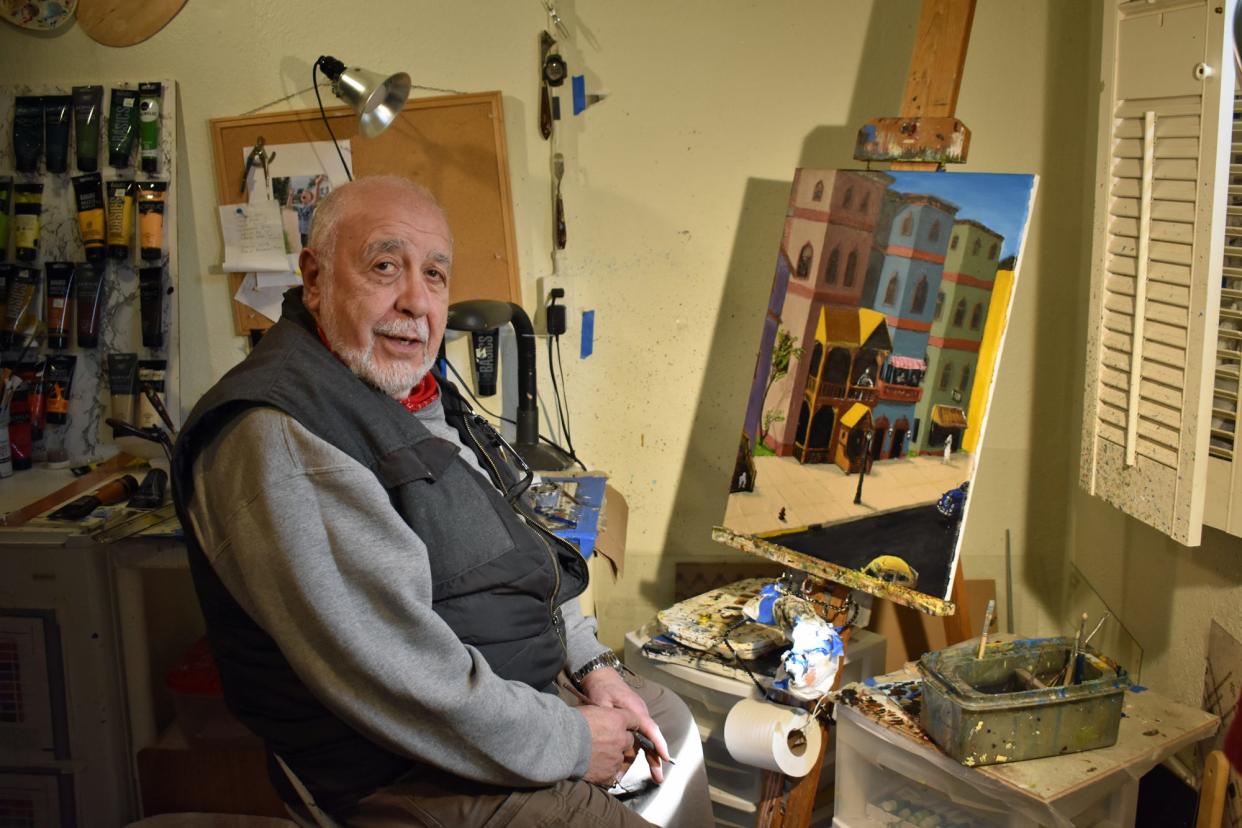
Lentil soup with chicken simmers in the kitchen, filling Joe Geha’s home with mouth-watering aromas of coriander, onions, garlic and leeks.
In Arabic, the soup is called Rishta and its recipe is the first one featured in Geha’s new book, “Kitchen Arabic.”
The book explores the rich history of his family’s emigration from Lebanon in 1946 along with his mother’s recipes folded in.
It’s storytelling that readers can really savor.
“Rishta, our last meal in the old country, is served traditionally to observe fresh starts, like the setting off on a journey or the occasion of a child’s first tooth,” Geha writes as a preface to the recipe.
Author, painter and a retired Iowa State creative writing professor, Geha settles into a living room chair in the Ames home he shares with his wife of 33 years, Fern Kupfer.
Writing about recipes and how they were created is a seamless combination of his greatest interests.
“Stories are the basis of the food and the recipes that go with them,” Geha told the Ames Tribune. “A way of understanding the world is through stories.”
More: Good Neighbor's second annual block party is Sunday in Ames
Joe's family − which also included his brother and sister − immigrated to the United States when he was two, leaving Beirut after World War II. His father orchestrated bribes to secure their passage on the Vulcania.
Upon arrival at Ellis Island 15 days later, all passengers were required to undergo a mandatory two-week quarantine to prevent the spread of typhoid fever, which was rampant in Lebanon at the time.
The family eventually made their way further inland, aimed at the Midwest.
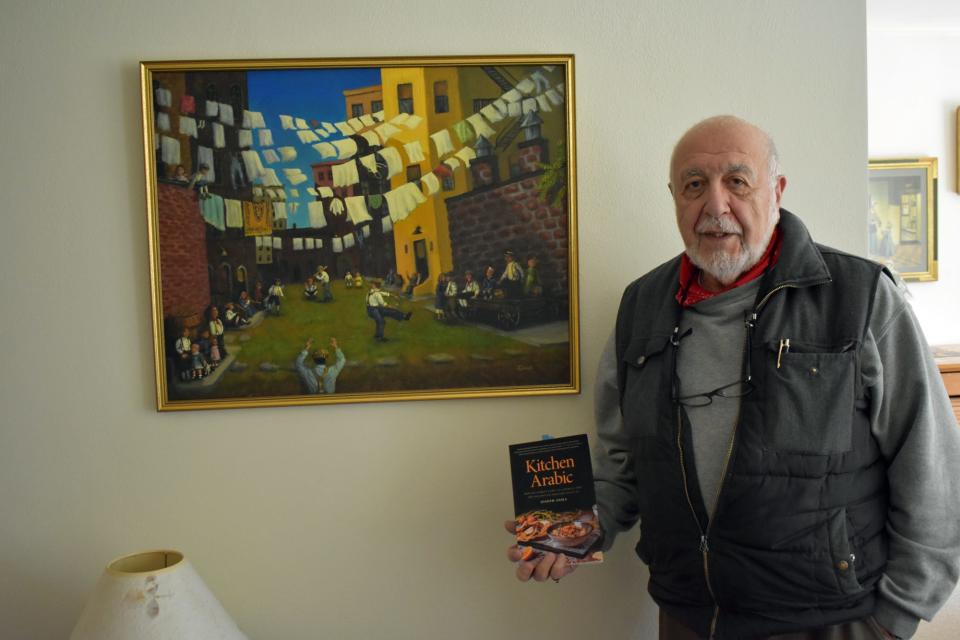
Joe Geha's family bought Lebanese ingredients from The Armenian
The Geha family settled in Toledo, Ohio, where Joe’s father opened a grocery store. The family lived in the upstairs apartment until Joe was 6 years old.
“That was our first home in America. Then we moved to a neighborhood downtown on Monroe Street,” Geha said. “I write in the book of some sketchy people there. They were colorful, interesting people, but some were a little dangerous.”
The grocery store was located on the edge of an area known as Little Syria. Tracking down the proper spices and flavors often found in Lebanese dishes was rather tricky. But, the family found a trusty source.
“We in Little Syria would get the ingredients that we needed from a man called The Armenian,” Geha said. “He would come down in a truck from Detroit every week.”
The Armenian would open the side panel of his truck and people would line up to buy ingredients such as orange blossom water, pressed apricots and olives similar to those found in the old country. He wasn't only good for spices, either. The Armenian could bake, too.
“He would also have Syrian bread because very few people baked at home," Geha said. "In the old country, it was too expensive for fuel to heat the oven up, so people would make their bread and take it to the corner bakery, and the baker would throw the loaves in for you. So we were used to buying our bread, which we did from The Armenian also.”
More: Photos: Downtown Ames Farmers Market and Food Truck Showdown
Food really is like a shortcut to home, Geha said
“It makes you feel connected again,” he said. “There's so much disconnection in immigrating.”
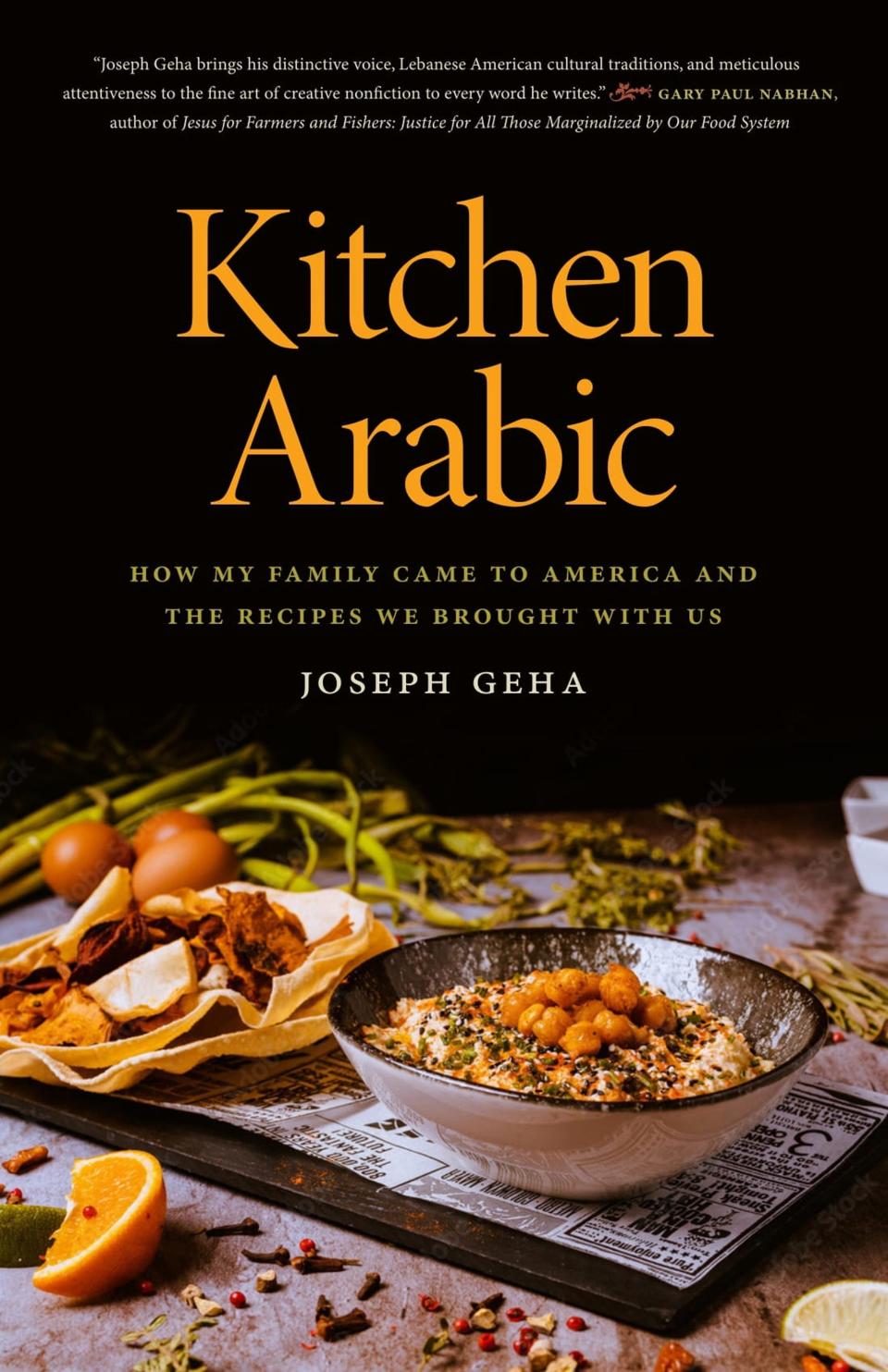
Geha did more than 25 years of cooking demos at Cooks' Emporium
Geha quickly became dependent on Pammel Grocery in Ames for the necessary components of his family's traditional meals.
“That has been a great resource for me,” he said. “Some of the things I buy there — the olives, the Jibneh cheese, the bread, the orange blossom water, rose water. There’s a rose liqueur, Jallab, that I buy there.
“Also, it’s not an ingredient, but the owner makes a great shawarma. It’s a delicious lunch.”
More: Still unclaimed: $1 million Iowa lottery ticket bought in Ames is close to expiring
Some of the hardest-to-find ingredients − the most exotic − are the ones used in Lebanese sweets.
“There’s one called Mahlab," Geha said. "It’s the center of cherry pits that are broken open somehow and ground."
As Geha experimented with various Lebanese recipes, his love for his home country continued to blossom.
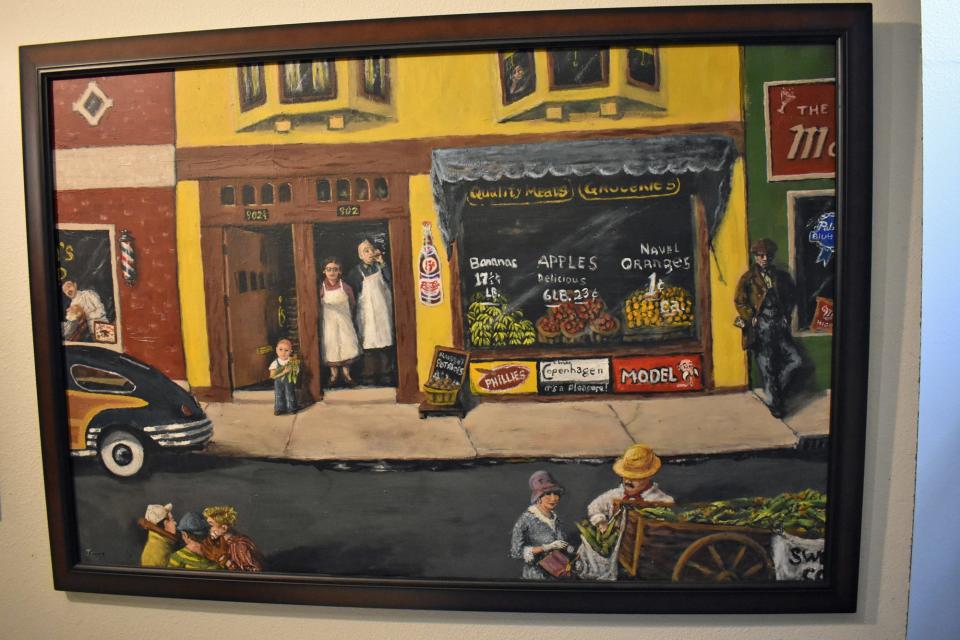
It took a distance for Geha to appreciate his heritage
Geha did not grow up learning his mother’s recipes, but he recalls how she was usually in the kitchen.
Geha began writing about his heritage when he took his first teaching job in Springfield, Missouri. The cultural differences in the heart of the Midwest were eye-opening.
“For me, I had to get out of my heritage in order to see it. It’s like a fish describing water,” he said. “So there I was in white-bread America, where there was not very much cultural diversity, and I started to write about my background.”
Dreams of his family’s home on Monroe Street in Toledo, as well as his father’s store, provided Geha with instant inspiration. His imagination kicked into overdrive, drawing out a desire to re-create those cherished childhood memories through his tastebuds.
“I missed the food. I missed the people," Geha said. "I had a cookbook I got on one of my trips home from the ladies’ auxiliary of the St. Elias Syrian Orthodox Church. But I wanted the recipes to taste like my mom’s.”
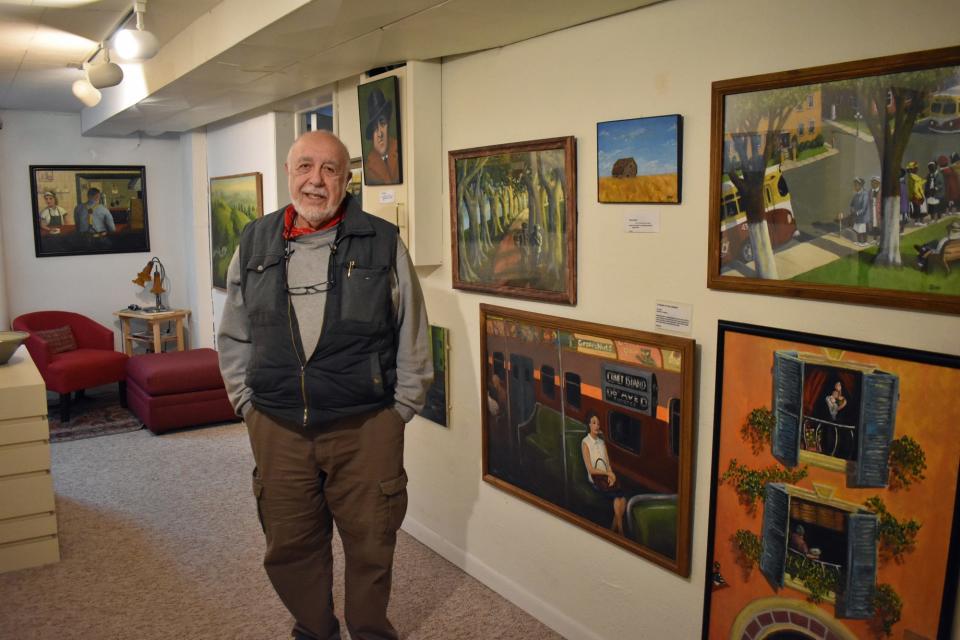
So every week, he made a new recipe from the book. He would call his mom and read the recipe to her over the phone. They became a prolific team, bouncing ideas off each other and tweaking recipes as they went.
“She couldn’t read or write. She’d listen to the recipe and correct it for me. ‘No, we don’t use garlic in that. We use lemon,’” he said. “I’d scratch out garlic and put in lemon.”
In the early 1990s, Geha started doing cooking demonstrations at Cooks’ Emporium in downtown Ames. He orchestrated two to three a year until the pandemic hit. The public performances emboldened his passion for story-telling.
“I did more than 25 years of demos. I learned that when you cook in front of other people, there’s an awful lot of standing around waiting for the onions to turn brown,” he said. “You’re looking at them and they’re looking at you. So I began telling family stories while I was cooking and they were waiting.”
A few of Geha’s students suggested he write a cookbook but with a twist. Add personal flavors and spices into the mix through story-telling.
“‘Don’t forget to include the family stories,’ they said," Geha said. "And I thought that was a great idea."
Copies of “Kitchen Arabic” at Dog-Eared Books on Main Street have been selling out.
Dog-Eared co-owner Amanda Lepper said the book, especially for a title by a local author, has been popular with customers. Some of the books on the independent bookstore’s shelves are signed by Geha.
“The book essentially tells the story of our immigration here. I wanted to use it to create a memoir,” Geha said. “I thought what might be of interest to people is how we came here, especially with the political climate as it is now about immigrants trying to get into the United States.”
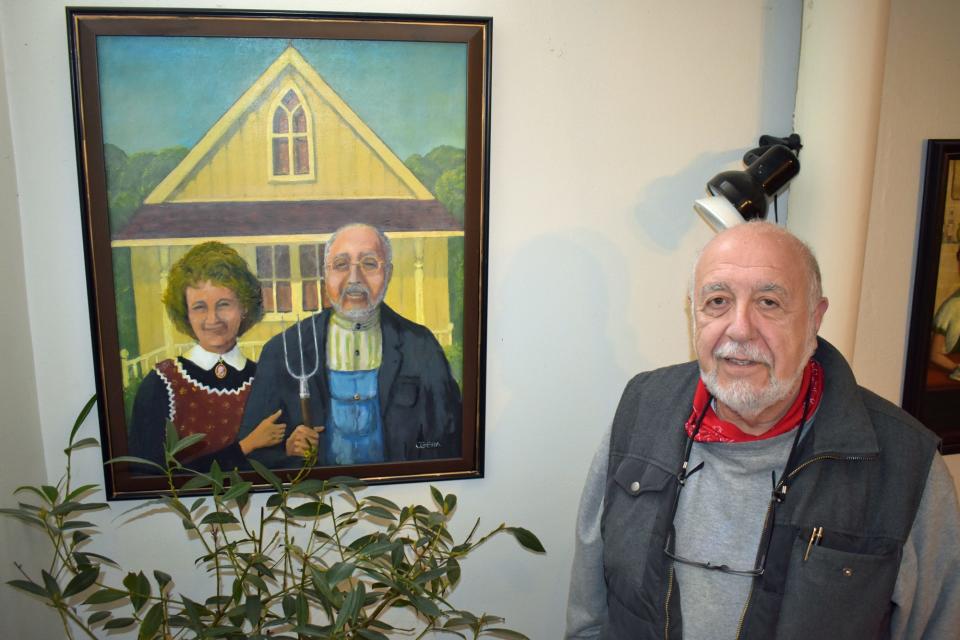
Ronna Faaborg covers business and the arts for the Ames Tribune. Reach her at rlawless@gannett.com.
This article originally appeared on Ames Tribune: Retired Iowa State professor pens memoir that combines family recipes

